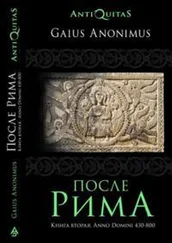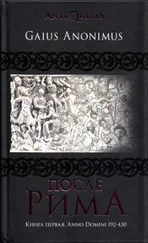Julius Vogel - Anno Domini 2000; or, Woman's Destiny
Здесь есть возможность читать онлайн «Julius Vogel - Anno Domini 2000; or, Woman's Destiny» — ознакомительный отрывок электронной книги совершенно бесплатно, а после прочтения отрывка купить полную версию. В некоторых случаях можно слушать аудио, скачать через торрент в формате fb2 и присутствует краткое содержание. Издательство: Иностранный паблик, Жанр: foreign_sf, literature_19, foreign_antique, foreign_prose, на английском языке. Описание произведения, (предисловие) а так же отзывы посетителей доступны на портале библиотеки ЛибКат.
- Название:Anno Domini 2000; or, Woman's Destiny
- Автор:
- Издательство:Иностранный паблик
- Жанр:
- Год:неизвестен
- ISBN:нет данных
- Рейтинг книги:4 / 5. Голосов: 1
-
Избранное:Добавить в избранное
- Отзывы:
-
Ваша оценка:
- 80
- 1
- 2
- 3
- 4
- 5
Anno Domini 2000; or, Woman's Destiny: краткое содержание, описание и аннотация
Предлагаем к чтению аннотацию, описание, краткое содержание или предисловие (зависит от того, что написал сам автор книги «Anno Domini 2000; or, Woman's Destiny»). Если вы не нашли необходимую информацию о книге — напишите в комментариях, мы постараемся отыскать её.
Anno Domini 2000; or, Woman's Destiny — читать онлайн ознакомительный отрывок
Ниже представлен текст книги, разбитый по страницам. Система сохранения места последней прочитанной страницы, позволяет с удобством читать онлайн бесплатно книгу «Anno Domini 2000; or, Woman's Destiny», без необходимости каждый раз заново искать на чём Вы остановились. Поставьте закладку, и сможете в любой момент перейти на страницу, на которой закончили чтение.
Интервал:
Закладка:
The slightest possible movement of impatience was all the rejoinder vouchsafed to this speech.
Lady Middlesex continued, "I spoke to you as strongly as I dared, as strongly as my position permitted, about my brother Reginald—Lord Reginald Paramatta. He suffers under a sense of injury. He is miserable. He feels that it is to you that he owes his removal to a distant station. He loves you, and does not know if he may venture to tell you so."
"No woman," replied Miss Fitzherbert, "is warranted in regarding with anger the love of a good man; but you know, or ought to know, that my life is consecrated to objects that are inconsistent with my entertaining the love you speak of."
"But," said Lady Middlesex, "can you be sure that it always will be so?"
"We can be sure of nothing."
"Nay," replied Lady Middlesex, "do not generalise. Let me at least enjoy the liberty you have accorded me. If you did not feel that there were possibilities for Reginald in conflict with your indifference, why should you trouble yourself with his removal?"
"I have not admitted that I am concerned in his removal."
"You know you are; you cannot deny it."
Miss Fitzherbert was dismayed at the position into which she had allowed herself to be forced. She must either state what truth forbade or admit that to some extent Lord Reginald had obtained a hold on her thoughts.
"Other men," pursued Lady Middlesex, with remorseless directness, "have aspired as Reginald does; and you have known how to dispose of their aspirations without such a course as that of which my brother has been the object."
"I have understood," said Miss Fitzherbert, "that Lord Reginald is promoted to an important position, one that ought to be intensely gratifying to so comparatively young a man."
"My brother has only one wish, and you are its centre. He desires only one position."
"I did not infer, Lady Middlesex," said Miss Fitzherbert, with some haughtiness, "that you designed to use the permission you asked of me to become a suitor on your brother's behalf."
"Why else should I have asked such permission?" replied Lady Middlesex, with equal haughtiness. Then, with a sudden change of mood and manner, "Miss Fitzherbert, forgive me. My brother is all in all to me. My husband and my only child are dead. My brother is all that is left to me to remind me of a once happy home. Do not, I pray, I entreat you, embitter his life. Ask yourself—forgive me for saying so—if ambition rather than consecration to a special career may not influence you; and if your conscience replies affirmatively, remember the time will come to you, as it has come to other women, when success, the applause of the crowd, and a knowledge of great deeds effected will prove a poor consolation for the want of one single human being on whom to lavish a woman's love. Most faculties become smaller by disuse, but it is not so with the affections; they revenge themselves on those who have dared to disbelieve in their force."
"You assume," said Miss Fitzherbert, "that I love your brother."
"Is it not so?"
"No! a thousand times no!"
"You feel that you might love him. That is the dawn of love."
"Listen, Lady Middlesex. That dawn has not opened to me. I will not deny, I have felt a prepossession in favour of your brother; but I have the strongest conviction that my life will be better and happier because of my refusing to give way to it. For me there is no love of the kind. In lonely maidenhood I will live and die. If my choice is unwise, I will be the sufferer; and I have surely the right to make it. My lady, our interview is at an end."
Lady Middlesex rose and bowed her adieu, but another thought seemed to occur to her. "You will," she said, "at least see my brother before he goes. Indeed, otherwise I doubt his leaving. He told me this morning that he would resign."
Miss Fitzherbert after a moment's thought replied, "I will see your brother. Bid him call on me in two hours' time. Good-bye."
As she was left alone a look of agony came over her face. "Am I wise?" she said. "That subtle woman knew how to wound me. She is right. I could love; I could adore the man I loved. Will all the triumphs of the world and the sense of the good I do to others console me during the years to come for the sunshine of love to which every woman has a claim? Yes, I do not deny the claim, high as my conception is of a woman's destiny." After a few moments' pause, she started up indignantly. "Am I then," she ejaculated half aloud, "that detestable thing a woman with a mission, and does the sense of that mission restrain me from yielding to my inclination?" Again she paused, and then resumed, "No, it is not so. I have too easily accepted Lady Middlesex's insinuation. I am neither ambitious nor philanthropic to excess. It is a powerful instinct that speaks to me about Lord Reginald. To a certain extent I am drawn to him, but I doubt him, and it is that which restrains me. I am more disposed to be frightened of than to love him. Why do I doubt him? Some strong impulse teaches me to do so. What do I doubt? I doubt his loving me with a love that will endure, I doubt our proving congenial companions, and—why may I not say it to myself?—I doubt his character. I question his sincerity. The happiness of a few months might be followed by a life of misery. I must be no weak fool to allow myself to be persuaded."
Hilda Fitzherbert was a thoroughly good, true-hearted, and lovable girl. Clever, well informed, and cultivated to the utmost, she had no disposition to prudery or priggishness. She was rather inclined to under- than over-value herself. Lady Middlesex's clever insinuations had caused her for the moment to doubt her own conduct; but reflection returned in time, and once more she became conscious that she felt for Lord Reginald no more attachment than any woman might entertain for a handsome, accomplished man who persistently displayed his admiration. She was well aware that under ordinary circumstances such feelings as she had, might develop into strong love if there were no reverse to the picture; but in this case conviction—call it, if you will, an instinct—persuaded her there was an opposite side. She felt that Lord Reginald was playing a part; that, if his true character stood revealed to her, an unfathomable abyss would yawn between them.
Her reflections were disturbed by the entrance of a lady of very distinguished mien. She might indeed look distinguished, for the Right Honourable Mrs. Hardinge was not only Prime Minister of the empire of Britain, but the most powerful and foremost statesman in the world. In her youth she had been a lovely girl; and even now, though not less than forty years of age, she was a beautiful—it might be more correct to say, a grand—woman. A tall, dignified, and stately figure was set off by a face of which every feature was artistically correct and capable of much variety of expression; and over that expression she held entire command. She had, if she wished it, an arch and winning manner, such as no one but a cultivated Irishwoman possesses; the purest Irish blood ran through her veins. She could say "No" in a manner that more delighted the person whose request she was refusing than would "Yes" from other lips. An adept in all the arts of conversation, she could elicit information from the most inscrutable statesmen, who under her influence would fancy she was more confidential to them than they to her. By indomitable strength she had fought down an early inclination to impulsiveness. The appearance still remained, but no statesman was more slow to form opinions and less prone to change them. She could, if necessary, in case of emergency, act with lightning rapidity; but she had schooled herself to so act only in cases of extreme need. She had a warm heart, and in the private relations of life no one was better liked.
Читать дальшеИнтервал:
Закладка:
Похожие книги на «Anno Domini 2000; or, Woman's Destiny»
Представляем Вашему вниманию похожие книги на «Anno Domini 2000; or, Woman's Destiny» списком для выбора. Мы отобрали схожую по названию и смыслу литературу в надежде предоставить читателям больше вариантов отыскать новые, интересные, ещё непрочитанные произведения.
Обсуждение, отзывы о книге «Anno Domini 2000; or, Woman's Destiny» и просто собственные мнения читателей. Оставьте ваши комментарии, напишите, что Вы думаете о произведении, его смысле или главных героях. Укажите что конкретно понравилось, а что нет, и почему Вы так считаете.












